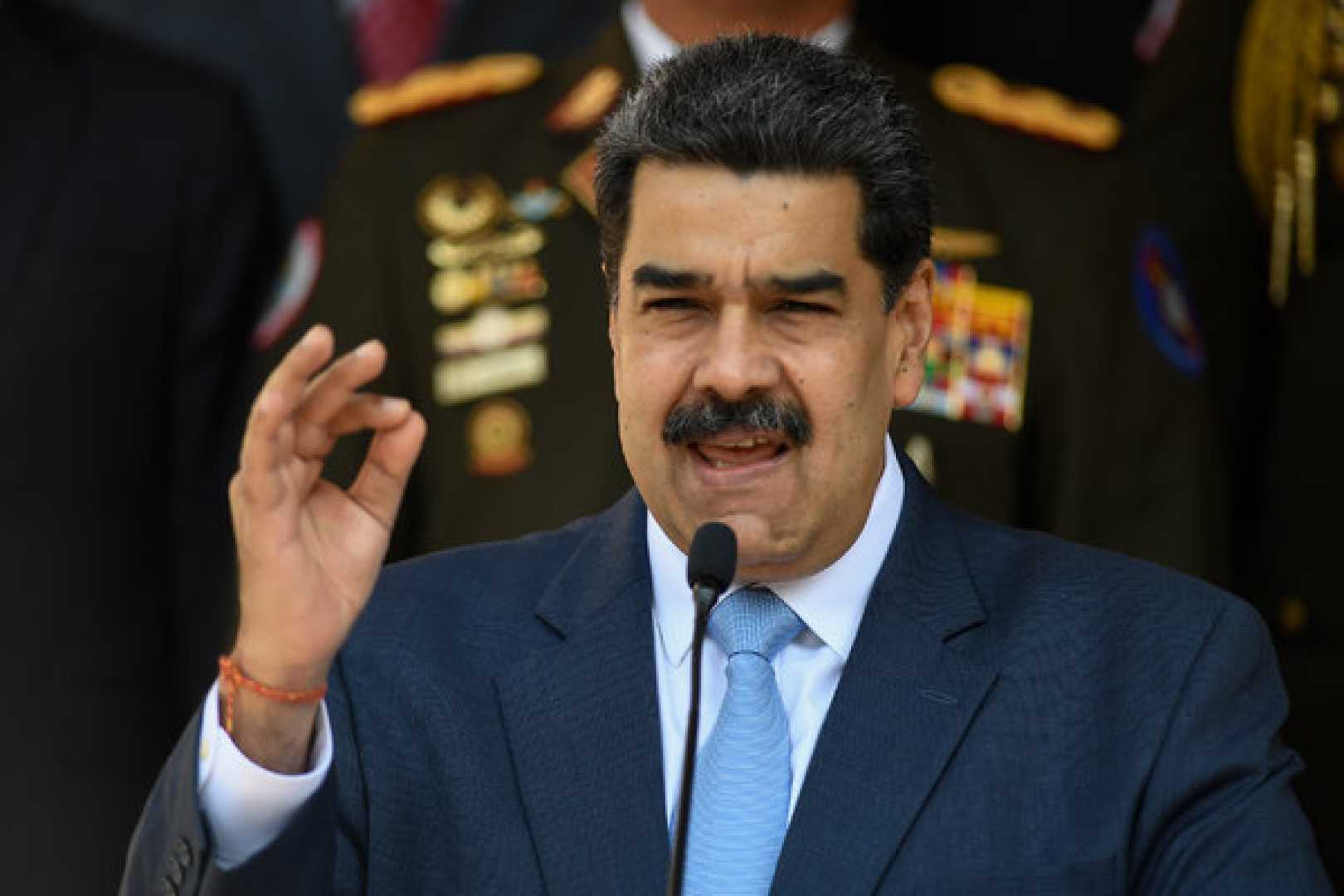News
Tensions Rise Between U.S. and Venezuela Amid Drug Trafficking Allegations

CARACAS, Venezuela — Tensions between the United States and Venezuela escalated dramatically following U.S. Attorney General Pam Bondi‘s announcement on August 7 of a $50 million reward for information on Venezuelan President Nicolás Maduro’s arrest. This announcement came as Maduro faces formal drug trafficking charges from the U.S. Justice Department since 2020.
Bondi labeled Maduro as ‘one of the most powerful drug traffickers in the world,’ asserting that he poses a threat to U.S. national security. Despite Caracas’ denials of the accusations, the deployment of over 4,000 U.S. military personnel to the southern Caribbean followed within days.
This military buildup surprised many, especially after a recent prisoner exchange between the Maduro government and the Trump administration, which also included a resumption of Venezuelan oil exports through Chevron. The situation has caused divisions within the White House, with some factions advocating against Chavismo while others prefer to avoid severe confrontations.
A U.S. government official—who spoke to CNN on the condition of anonymity—stated, ‘Donald Trump came to the White House as a president of peace,’ but acknowledged pressure from sectors opposed to Maduro’s rule. Meanwhile, the White House’s focus on Maduro’s alleged drug trafficking ties has raised questions, as many have called for a demand for democracy restoration in Venezuela instead.
Critics point out that accusations of drug trafficking involving the Miraflores presidential palace date back at least a decade. Yet, evidence from Bondi has not been substantiated. Venezuelan congresswoman Blanca Eekhout refuted the claims, asking, ‘For there to be a drug cartel, you need to produce or traffic the drugs. If there is no cultivation in Venezuela, how can there be a cartel?’
Global data from the United Nations Office on Drugs and Crime (UNODC) position Colombia as the primary producer of coca—the raw material for cocaine—with Venezuela absent from the cocaine production maps. The U.S. Drug Enforcement Agency (DEA) corroborates these findings, with 84% of cocaine seized in the U.S. coming from Colombia.
Despite allegations against Maduro, investigators revealed that Venezuela’s role in drug trafficking is minimal compared to other nations. Former U.S. Attorney General Bill Barr claimed in 2020 that the Venezuelan government facilitated the transport of ‘up to 250 tons of cocaine annually.’ This figure represents a small fraction of the global drug trade.
While Venezuelan officials acknowledge some level of drug trafficking, they insist that the government does not support or promote it. Statistics show that in the past year, Maduro’s security forces seized numerous aircraft and vessels believed to be involved in transporting cocaine, though these figures have not been independently verified.
The upcoming sentencing of Hugo “El Pollo” Carvajal, a former high-ranking Venezuelan official who pleaded guilty to drug trafficking charges, may impact the ongoing scrutiny of Maduro. Carvajal’s cooperation with U.S. prosecutors raises questions about the links between Venezuelan leadership and narcotics operations.
Maduro has vehemently denied any involvement with drug trafficking, framing U.S. actions as a direct threat to Venezuela’s sovereignty. He characterized the recent military deployment as ‘cannon diplomacy’ and warned of potential escalation in confrontations.
International tensions continue to mount as Guyana, with its critical oil reserves, aligns itself with the U.S. against Venezuela’s territorial claims. The situation remains fluid, with potential ramifications for trade, security, and diplomatic relationships in the region.












